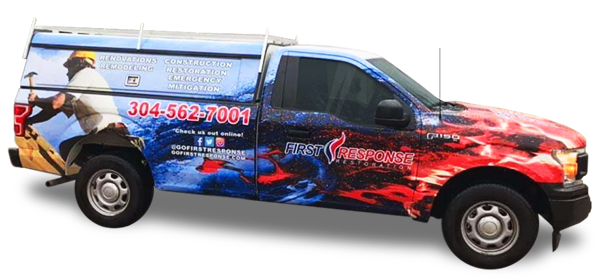If your house has recently experienced water damage, you might be wondering whether it is safe to stay overnight. The answer is not as straightforward as a simple “yes” or “no”. Depending on the extent of the damage, there might be several risks to your health and safety that you need to be aware of.
In this article, we will explore the potential dangers associated with staying in a water-damaged home. We will discuss health hazards, structural damage, mold growth, water contamination, electrical hazards, and fire risk. Additionally, we will provide you with some practical advice on what to do if you have no choice but to stay overnight.
Key Takeaways
- Water damage can compromise the structural integrity of your house and pose electrical hazards.
- Mold and bacteria growth are potential health hazards associated with water damage.
- Contaminated water can cause infections and diseases.
- Proper hygiene and safety precautions are necessary when staying in a water-damaged home.
- If you must stay overnight, set up temporary sleeping arrangements and seek emergency accommodations if necessary.
Understanding the Risks of Water Damage
Water damage is a serious problem that can cause a wide range of risks to your health and property. The water damage risks to your health can include exposure to harmful bacteria and other pollutants that can lead to a variety of health concerns. Additionally, exposure to mold and mildew can also pose a significant risk to your well-being.
The property damage from water can also be extensive. Water can weaken the structural integrity of your home, leading to compromised foundations and stability issues. Additionally, water can cause electrical hazards and even lead to electrical fires. The dangers of water damage are numerous, and it’s important to take swift action to address any signs of water damage immediately.
It’s essential to be aware of the health risks of water damage, as well as the long-term property damage it can cause. If you suspect water damage in your home, taking action quickly is crucial to mitigate these risks. Doing so can prevent more significant problems from arising and ensure the safety of your family and your property.
Structural Integrity and Safety Concerns
Water damage can result in significant structural damage to your home, creating safety hazards that must be addressed promptly. One of the most significant concerns is the compromise of your home’s foundation. Standing water can seep into the soil and lead to erosion and foundation movement, causing cracks or structural damage to the building’s main support. This issue can lead to similar safety concerns with floors and walls. Moreover, foundation damage can cause your home’s stability to be compromised, presenting potential risks to the structural integrity of the entire building.
Another significant safety concern related to water damage is the potential for electrical hazards. Water can travel through electrical wiring with ease, exposing you to significant risks such as electrical shock and fires. It is therefore advisable to switch off your home’s electrical system at the main switch or call an electrician before assessing the damage or attempting to repair electrical wiring.
It is important to note that the above-described hazards can be exacerbated by ignoring or failing to address water damage issues promptly. Therefore, it is essential to engage the services of professionals to help you assess the structural damage to your home and provide appropriate structural repairs. In the next section, we will discuss the impact of water damage on mold and mildew growth in your home.
Mold and Mildew Growth
If left untreated, water damage can lead to mold growth in your home. Mold can be harmful to your health, causing respiratory problems, allergic reactions, and other health issues. Inhaling mold spores can be particularly dangerous for people with weakened immune systems or underlying health conditions.
Mold can also impact the indoor air quality in your home, causing unpleasant odors and making it difficult to breathe. It’s important to address mold growth in your home promptly to prevent further damage and protect your health.
| Health Risks of Mold | Mold Remediation |
|---|---|
| Mold can cause respiratory problems, allergic reactions, and other health issues. | Professional mold remediation services can help remove mold and prevent further growth. |
| Inhaling mold spores can be particularly dangerous for people with weakened immune systems or underlying health conditions. | Addressing the source of the water damage and ensuring proper ventilation can help prevent future mold growth. |
| Prolonged exposure to mold can have long-term health consequences. | Regular mold inspections can help identify potential issues before they become a problem. |
If you suspect mold growth in your home, it’s important to contact a professional mold remediation service immediately. They can assess the situation and develop a plan to remove the mold safely and effectively.
Ignoring mold growth in your home can lead to serious health risks and property damage. Addressing water damage promptly and taking steps to prevent mold growth can help protect your health and preserve your home.
Water-contaminated Areas and Bacterial Infections
When water damage occurs in a home, it can contaminate various areas of the house. Contaminated water can lead to bacterial and fungal growth, putting you at risk of waterborne diseases and bacterial infections. To avoid these risks, it’s important to maintain proper hygiene in your water-damaged home.
One of the most commonly contaminated areas is the bathroom. You should avoid using any affected bathroom until it is thoroughly disinfected. If you must use the bathroom, wear protective clothing, including gloves and a mask, to prevent direct contact with contaminated surfaces.
The kitchen is also a potential source of contamination. Avoid using tap water until it has been tested and deemed safe. Make sure to clean and sanitize all utensils, dishes, and appliances that came into contact with the contaminated water.
It’s important to note that contaminated water can also seep into the walls, flooring, and insulation of your home. In these cases, it’s best to seek professional cleaning and remediation services to ensure your home is safe from harmful bacteria and fungi.
| Signs of Water Contamination | Hygiene Tips |
|---|---|
| Unpleasant Smell | Wash your hands regularly with soap and clean water |
| Discolouration | Avoid direct contact with contaminated water |
| Turbidity (cloudy/murky water) | Wear protective clothing when handling contaminated surfaces |
Remember that contaminated water can have serious health consequences, including diarrhea, vomiting, and other waterborne illnesses. Take the necessary precautions to maintain proper hygiene and seek professional assistance when necessary. Your safety should always be a top priority.
Electrical Hazards and Fire Risk
When water damage occurs, the risk of electrical hazards and fire increases significantly. Water can cause electrical damage to wiring, appliances, and outlets, leading to a potential short circuit and/or electrical fires.
It’s crucial to take safety precautions to reduce the risk of injury or property damage. In case of electrical damage from water, immediately cut off the power supply to that specific area before attempting any repair work or maintenance. Do not turn on electrical appliances or handle cords or wiring that have been exposed to water until a professional inspection has been carried out for safety reasons.
Always seek professional electrical inspection after water damage to assess any possible electrical damage. A certified professional can detect any underlying electrical problems and assess the damage caused by water penetration, keeping you and your household safe from electrical hazards and fire risk.
Steps to Take If You Need to Sleep in a Water-Damaged Home
If you find yourself in a situation where you must stay overnight in a water-damaged home, there are critical safety measures to implement to protect yourself and others. These temporary measures can help minimize the risks associated with water damage:
- Ensure your sleeping area is elevated: Place your mattress and bedding on elevated surfaces to prevent contact with water-damaged floors or carpets. This can be accomplished by stacking books, bricks, or other sturdy objects to create a raised platform.
- Avoid areas with visible water damage: Do not sleep or spend time in areas of the home with visible water damage. This is especially true if the water damage involves sewage or other contaminated water sources.
- Control humidity levels: High humidity can contribute to the growth of mold and mildew. Use dehumidifiers or air conditioning units to maintain optimal humidity levels inside the home.
- Purify the air: Use high-efficiency particulate air (HEPA) filters or air purifiers to improve indoor air quality and remove contaminants from the air.
- Seek emergency accommodations: If your living conditions are unsafe or unhealthy due to water damage, it’s essential to seek emergency accommodations. Contact your local disaster relief agencies or American Red Cross for additional resources and support.
Remember, these steps are only temporary measures. It’s crucial to address water damage in your home promptly to prevent further damage and ensure the safety of everyone in the house. Conduct a professional inspection and seek assistance from trusted professionals to remedy water damage as soon as possible. Staying safe in a water-damaged home requires proactive measures, and taking these steps can significantly reduce the risk of harm.
Conclusion
Water damage in a home can have serious health and safety implications for you and your property. Understanding the risks of water damage, structural integrity and safety concerns, mold and mildew growth, water-contaminated areas, and electrical hazards is crucial to keeping you and your loved ones safe.
If you do need to sleep in a water-damaged home temporarily, take necessary precautions, such as setting up temporary sleeping arrangements and seeking emergency accommodations if necessary.
Remember, addressing water damage promptly is key to ensuring the safety and integrity of your home. Don’t hesitate to seek professional assistance when needed to address any water damage concerns.
Stay safe!
FAQ
Is it safe to sleep in a water-damaged home?
No, it is not safe to sleep in a water-damaged home. Water damage can pose various risks to your health and safety.
What are the risks of water damage?
Water damage can lead to health risks, such as mold growth and bacterial infections, as well as property damage, including structural issues and electrical hazards.
How does water damage affect the structural integrity of a home?
Water damage can compromise the foundation of a home, causing stability issues and increasing the risk of structural damage.
What are the potential health risks of mold in a water-damaged home?
Mold growth in a water-damaged home can lead to respiratory problems, allergies, and other health issues. It is essential to address mold growth promptly and ensure proper mold remediation.
Which areas of a water-damaged home can become contaminated, and what are the risks?
Water-damaged areas, especially those affected by sewage backup, can become contaminated and pose a risk of bacterial infections and waterborne diseases. Proper hygiene practices are crucial in a water-damaged home.
What are the electrical hazards and fire risks associated with water damage?
Water damage can cause electrical systems to malfunction, increasing the risk of electrical hazards and fires. It is important to take safety precautions and have a professional inspect the electrical system after water damage occurs.
What steps should I take if I need to sleep in a water-damaged home temporarily?
If you have no other option but to sleep in a water-damaged home temporarily, there are important safety measures to follow. These include setting up temporary sleeping arrangements away from the affected areas and seeking emergency accommodations if necessary.
What are the key takeaways regarding water damage and its risks?
Water damage poses significant risks to both health and property. It is crucial to address water damage promptly, considering the potential for mold growth, bacterial infections, structural issues, and electrical hazards.

















